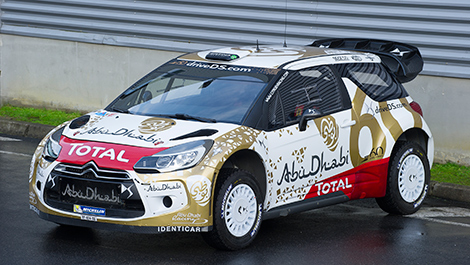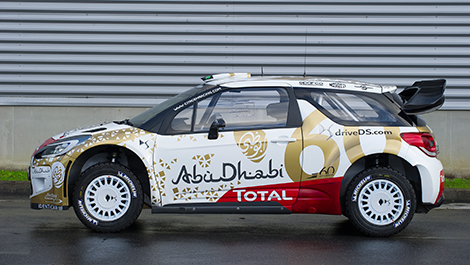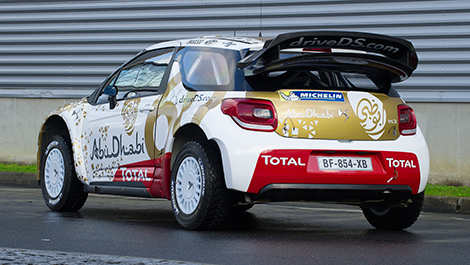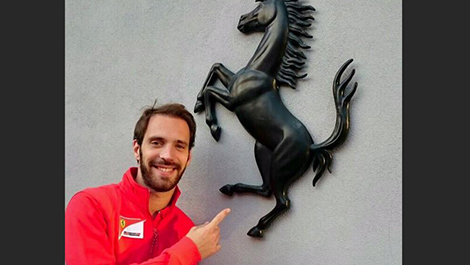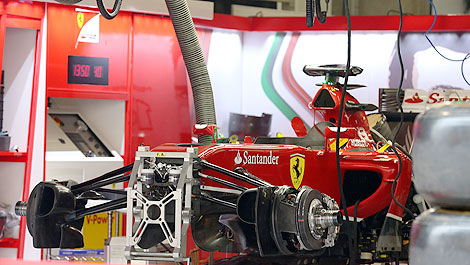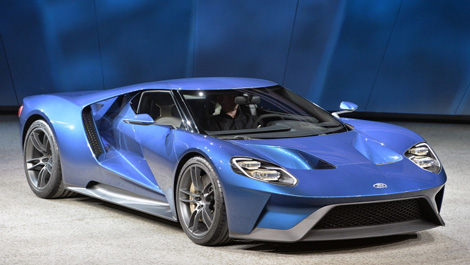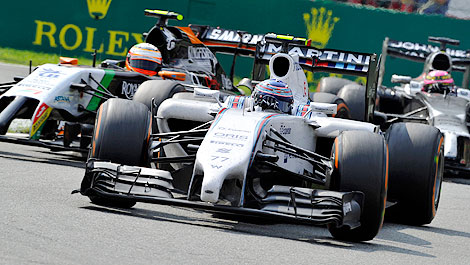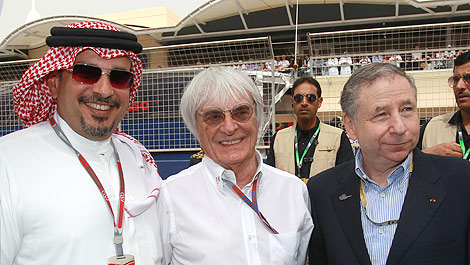In 2003, Renault inaugurated a new racing series aimed at developing future F1 stars: Formula Renault V6.
At the time, the French manufacturer had set up two support series - Formula Renault 1600 and Formula Renault 2.0 - but it needed a more powerful machine. Renault teamed up with Tatuus, an Italian company, to design the RFV6 around a carbon chassis, a 370-horsepower 3.5L V6 engine, and a 6-speed transmission with paddle shifters.
As a PR man working in the Fran-Am series, I was invited to test drive the car at Circuit de Catalunya in early spring. I flew from Montreal to Paris to Barcelona and arrived at my hotel. The very next day, someone took me to the track along with Andrew Bordin, a former Formula Atlantic driver.
In the parking lot, the presence of multiple service trucks and motorhomes immediately raised a few concerns in my mind. I was told it was an official test day, the last one before the start of the season, meaning I would not be alone on the track.
Within a fraction of a second, I realized that I would have to:
• Drive among a bunch of speed-obsessed drivers;
• Get familiar with a brand new car;
• Get familiar with the track;
• Learn how to brake with my left foot.
That was quite a challenge for a modest journalist and amateur driver like me!
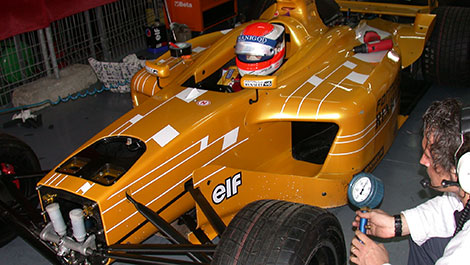 |
| Last minute changes before my first run. (Archives René Fagnan) |
The other drivers invited by Fran-Am officials took turns in the yellow test car (chassis No. 01). Then, Andrew had his go, and I was due next. Unfortunately, the rain started just as I was ready to put my helmet on!
The Tatuus crew quickly installed Michelin rain tires and I slid into the cockpit before learning about the various controls on the steering wheel.
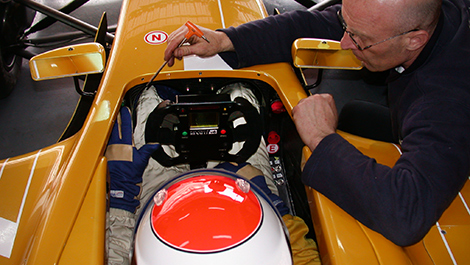 |
| Getting the explanations about the dashboard and commands. (Archives René Fagnan) |
The engine came to life with a somewhat muffled growl, and I didn't feel anything as I released the clutch paddle because it was all electronic. God had mercy and I didn't stall the engine.
My first lap with the Formula Renault V6 car could hardly have been any slower. To tell you the truth, I didn't know exactly whether the track turned left or right!
On the straightaway, I decided to sprint until the shift indicator lit up. In sixth gear, right in front of the stands, I hit about 260 km/h.
Turn 3 is a famously long, sweeping right-hander that I found impressive. Given the wet, slippery conditions, this was no time to tempt the devil, however.
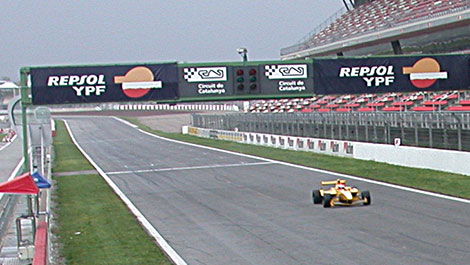 |
| Driving in the rain, in front of empty grandstands. (Archives René Fagnan) |
On the ensuing lap, I slowed down to attack the first corner and the transmission locked: Despite my repeated pulls on the left paddle, it remained stuck in sixth gear.
I completed the lap and returned to the pits. Upon close inspection, the mechanics determined that a small drop in hydraulic pressure was to blame. They reset the transmission, allowing me to get back in action.
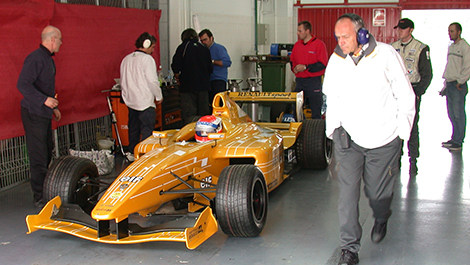 |
| Under the guidance of Tatuus big boss, Gianfranco de Bellis (white jacket). (Archives René Fagnan) |
I caught up with another car and surprisingly managed to keep pace for a while. After three corners, however, my guardian angel whispered - no, shouted - something into my ear: “slack off!” At Turn 10 (La Caixa), which is a left-hand slow corner, I locked the front wheels.
I later made yet another stop by the pits. The crew gave me more front wings and adjusted the tire pressure. Once back on the track, I spun around like a rookie in Turn 12 and, although the engine didn't stall, I was unable to engage reverse. Finally, someone waved the red flag and I was shamefully pulled out of the way by a truck with a winch.
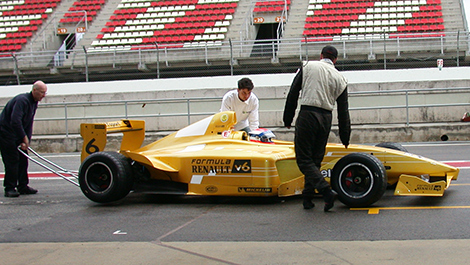 |
| Stuck in gear, once again... (Archives René Fagnan) |
My last run was marred by the transmission, which once again got stuck in sixth gear. No need to risk damaging the unit or the entire car by going any further, so I exited the cockpit. Overall, I did a mere seven laps in one full hour!
The Formula Renault V6 series ended up lasting two seasons. Argentina's José María López won the first title in 2003, while Switzerland's Giorgio Mondini became the champion the following year. Renault later developed a new car, which you're probably familiar with since it still exists - Formula Renault 3.5.
 The latest auto news, reviews, prices, product and vehicle releases.
The latest auto news, reviews, prices, product and vehicle releases. 